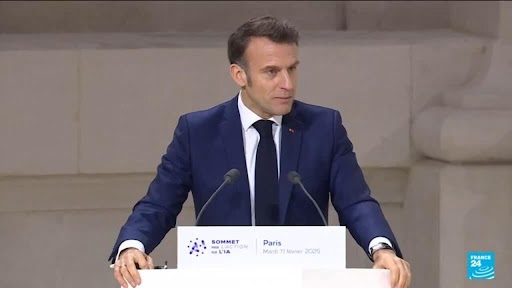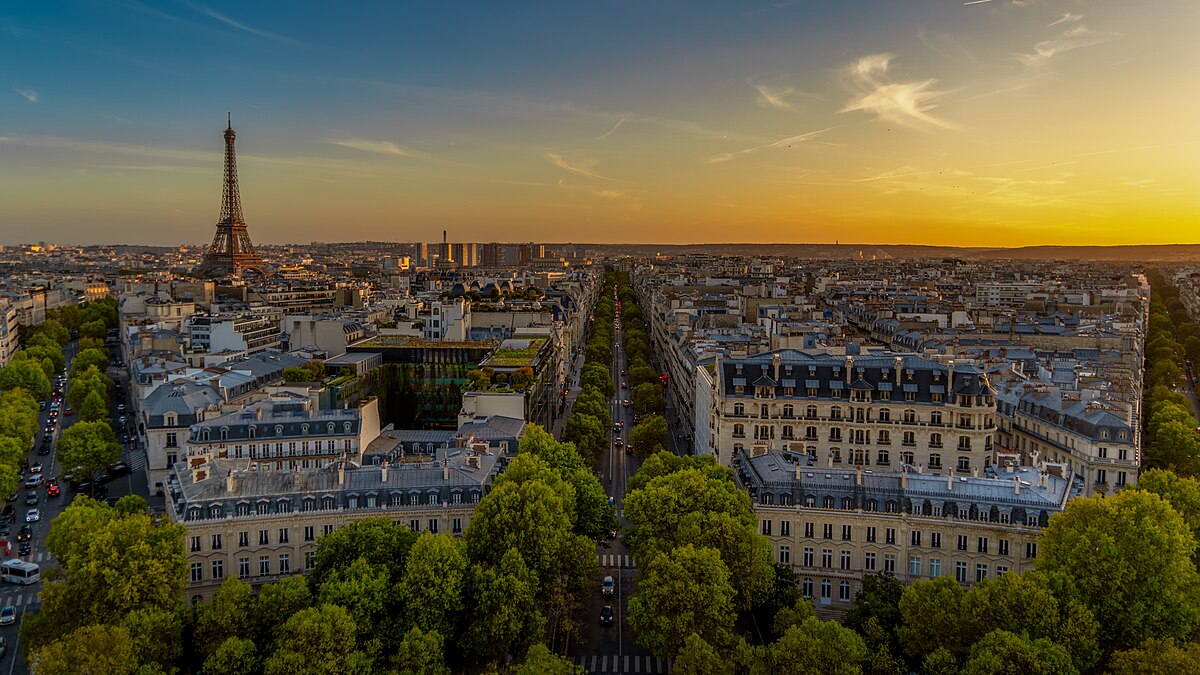France stands out across Europe’s AI and digital infrastructure landscape, due to its unique energy mix, favouring sustainable power sources. In an age where there is growing consciousness surrounding the need for decarbonization on one hand, and the ever increasing demand for scalable AI-ready digital infrastructure on the other, this offers a ray of hope for Europe’s AI dreams. Let’s take a closer look at what the French are doing right, and how other nations with AI ambitions can emulate France.
Nuclear + natural = more sustainable
The majority state-owned utility Electrice de France (EDF) generates approximately 70 percent of the national electricity from nuclear and another 20 percent from renewable sources, including hydro, wind, and solar. The carbon intensity from electricity produced is around six grams of CO₂ per kilowatt-hour, far below the European average.
This is a decisive advantage for energy-intensive operations like AI data centers. Unlike markets that rely heavily on natural gas or intermittent renewables, France offers a stable, predictable, low-carbon power supply that can support the sustained load of AI model training and high-density computing clusters.
EDF’s long-term pricing agreement, a €70/MWh ceiling for nuclear output from 2026 further enhances predictability. Hyperscalers can plan capital expenditures and operational budgets with certainty, a rare feature in a sector where energy costs can constitute 30–50% of total operational expenditures.
Government takes initiative
In February 2025, President Emmanuel Macron took the stage at the AI Action Summit in Paris with a message that combined ambition, pragmatism, and marketing savvy:
“AI is, first of all, a formidable technological and scientific revolution for progress and in the service of progress. And so it is first of all obviously technology, science, the improvement of lots of research, a transformation of many sectors, but our conviction, this is because it must be done in the service of humanity and therefore to live better,” said Macron.

He emphasized the practicality of this advantage saying, “We have available land, we have low-carbon, pilotable available energy. And this is unique. Here there is no need to drill, it’s just ‘plug, baby, plug’. Electricity is available. France is open for business and its competitive edge lies in two assets few other countries can match: state-of-the-art data-center infrastructure and reliable, low-carbon energy.”
Macron further said, “We want our cloud, we want our data centers, we want our computing capacities and we want all the services and infrastructures allowing us to preserve this intelligence. So the Notre-Dame approach will be adopted for data centers, for authorisations, to go to market for AI and attractiveness. For energy-intensive AI infrastructure, France is not just an option, it is a strategic advantage.”
He concluded by asserting, “These words were not mere rhetoric. They underscore a strategic alignment of France’s industrial policy with its climate credentials and position the country as Europe’s most attractive location for hyperscale AI and cloud deployments. The common thread among these projects is strategic alignment with France’s low-carbon electricity. Long-term contracts with EDF are increasingly standard, allowing operators to assure stakeholders investors, clients, regulators that AI workloads will run on sustainable power.”
Global giants flock to France
The AI boom is driving an unprecedented investment wave in French data-center capacity. Some of the most notable initiatives include:
Microsoft invested €4 billion (US$ 4.63 billion) to develop its cloud and AI infrastructure in France to provide the country with a capacity for 25,000 latest generation GPUs by the end of 2025. Microsoft is thus unveiling the extension of its existing sites in the Paris and Marseille regions and opened a new site to host new generation data centers in the Grand region East, within Mulhouse Alsace Agglomération.
In early 2025, Data4 announced a €20 billion (US$ 23 billion) infrastructure program to expand AI-related infrastructure in France. The investment, led by Brookfield, will focus on data centers and related facilities needed to support AI growth. About €15 billion (US$ 17 billion) will go toward data centers through Data4, Brookfield’s Paris-based portfolio company and one of Europe’s largest data center developers. Data4 plans to add more than 500 MW of data center capacity across several French regions and aims to triple that by 2030.
Meanwhile, Tikehau Capital, has increased its investment in Eclairion, a European high-performance computing (HPC) and AI hosting provider. The firm is adding €50 million (US$ 8 million), bringing its total commitment to €160 million (US$ 185 million) to help fund Eclairion’s expansion. Eclairion operates one of Europe’s largest dedicated HPC sites, with a 60 MW initial power capacity.
Yet another example is that of G42, an AI technology group based in Abu Dhabi, United Arab Emirates, that has made a strategic investment in France and formed a partnership with DataOne, Europe’s first large-scale AI hosting data center. Managed by Core42, which focuses on cloud and AI infrastructure, the project will develop a new AI data center in Grenoble. These partnerships within the European AI sector aim to support digital transformation across industries and expand France’s AI infrastructure for AI development.
Market dynamics: growth and trends
According to a data center market report by Mordor Intelligence, France’s data center IT load capacity reached 2,070 MW in 2025 and is projected to more than double to 4,550 MW by 2030, representing a compound annual growth rate (CAGR) of 17.08%. Over the same period, the country’s data center market revenue is expected to grow from US$ 6.26 billion in 2025 to US$ 10.01 billion in 2030, reflecting a CAGR of 9.84%.
According to the same report, France’s nuclear-powered grid, which is 94% low-carbon, combined with hyperscale investments exceeding EUR 5.2 billion (US$ 6.05 billion) in 2024 alone, underscores strong and continuing confidence among operators.
The accelerating demand for artificial intelligence is compelling operators to retrofit facilities with liquid cooling and rack densities of 60-250 kW, a shift reinforced by giga-scale projects such as BSO’s 400 MW DataOne campus in Grenoble.
Edge build-outs linked to nationwide 5G and fiber rollouts are stimulating regional deployments outside Paris, while government fast-track permits for “Projects of Major National Interest” shorten approval cycles for strategic data-infrastructure projects.
Streamlining infrastructure deployment
Even with abundant low-carbon power, deploying large-scale data centers in France requires careful navigation through regulatory and environmental constraints. Macron’s “Notre-Dame approach” is a metaphor for rapid reconstruction with a single accountable project manager of the government commitment to streamline permitting, land allocation, and environmental approvals without compromising sustainability standards.
Projects must still comply with the ICPE environmental framework, water-use regulations, and the REEN Act, which mandates the measurement and reporting of digital carbon footprints. However, the new approach allows operators to move faster, a crucial factor in a sector where time-to-market can determine competitive advantage.
Power purchase agreements
In January 2024, Equinix signed seven 20‑year power purchase agreements (PPAs) with wind‑farm developer wpd in France, covering more than 100 MW of capacity and over 300 GWh of annual green energy output. The projects include four wind farms in Nouvelle‑Aquitaine, two in Hauts‑de‑France, and one in Pays‑de‑la‑Loire, supporting renewable energy supply in France through 2045 under the agreements.
On March 21st, 2024, Data4 (a French data‑center operator) announced two PPAs with French renewable‑energy developers Eurowatt and Photosol. Data4 said it will be purchasing its energy from three French wind farms (12 MW each) which deliver approximately 80 GWh per year through the Eurowatt contract. This includes three photovoltaic parks in Alpes‑Maritimes and Loir‑et‑Cher will supply around 70 GWh annually.
In Q2 2024 Digital Realty signed two 15-year agreements for wind energy projects in France. The projects, developed by wpd, a German renewable energy developer, involve small wind farms located in the Bretagne and Hauts-de-France regions.
Way before that, in December 2021 OVHcloud signed a 15‑year PPA with EDF Renewables for a 50 MW solar photovoltaic project in the south of France that was commissioned in 2024. OVHcloud’s deal secures competitively‑priced renewable electricity for OVHcloud’s multiple French data‑center sites and supports its goal of achieving 100 % renewable electricity by 2025.
Strategic Implications
France offers a compelling combination of energy security, low-carbon credentials, and regulatory predictability. The advantages include:
- Cost Predictability: Long-term EDF contracts stabilize operational expenses.
- Sustainability Credentials: Ultra-low-carbon power meets ESG commitments and future-proofing against EU carbon regulations.
- Government Support: Accelerated permitting and infrastructure investment under France 2030 reduces lead times and risk.
- European Sovereignty: Hosting data in France provides legal clarity under EU rules and reduces dependency on non-European cloud providers.
From a financial perspective, these advantages translate into lower operational risk, more efficient capex deployment, and enhanced ESG reporting all key considerations for institutional investors and strategic partners.
Grid and infrastructure considerations
France offers energy‑efficiency advantages for data center operators but there are still restrictions to expansions due to local grid constraints. RTE country’s electricity transmission operator has identified potential saturation points in the Marseille region and parts of Île‑de‑France. To manage this risk, data‑centre operators are increasingly combining direct power purchase agreements (PPAs), on‑site or nearby energy‑storage systems, and heat‑recovery links into urban infrastructure.
Developers are also increasingly incorporating air and water-efficient cooling technologies, not only to comply with environmental regulations but to reduce operational expenditures. This synergy between regulatory compliance and operational efficiency exemplifies how France is turning environmental constraints into competitive advantages.
Public-private synergies and AI ecosystem
France’s government strategy goes beyond energy and permitting. Investments in skills training, chip fabrication, and AI research infrastructure complement the physical data-center ecosystem. Microsoft and Brookfield, for example, are required to invest in workforce upskilling, integrating ESG and innovation objectives into their operational models.
Partnerships with start-ups and research institutions such as Mistral AI, LightOn, and Hugging Face strengthen the AI ecosystem, ensuring that physical infrastructure is paired with innovation capacity. Macron’s broader point is that data centers are not just buildings; they are enablers of industrial and research leadership.
Environmental leadership as a differentiator
France’s low-carbon energy profile does more than reduce operational emissions. It positions the country as a leading sustainable AI hub. With increasing scrutiny from investors, clients, and regulators, the carbon footprint of data-intensive operations is becoming a decisive factor in site selection.
Non Governmental Organizations (NGOs) and regulatory bodies advocate for mandatory reuse of waste heat and efficient water use. France’s ICPE framework and REEN Act create a compliance baseline, while the government’s emphasis on pilotable, low-carbon electricity provides operational flexibility unmatched in other European markets.
Conclusion: A strategic opportunity
France’s AI and data-center strategy combines energy stability, sustainability, and regulatory foresight in a package designed for executive decision-makers. By leveraging its nuclear and renewable energy capacity, streamlining approvals, and linking infrastructure to public investment in skills and chip manufacturing.
France offers a compelling environment for long-term, high-capacity AI operations for deployable data center infrastructure, and a government aligned with both industrial growth and ESG goals.




